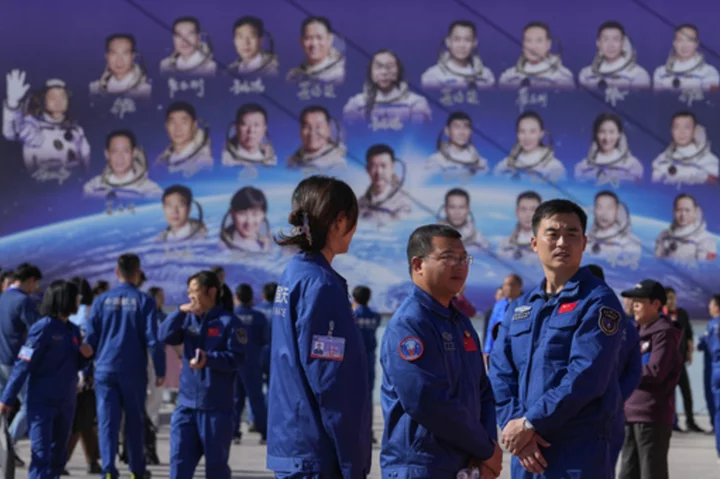TAIPEI, Taiwan (AP) — China announced plans on Wednesday to send a new telescope to probe deep into the universe as it prepared to launch the country’s next, three-member crew for its orbiting space station.
The telescope, dubbed Xuntian, will be installed by China's Tiangong space station and will co-orbit with it, according to a statement from Lin Xiqiang, spokesperson and deputy director general of the Chinese Manned Space Agency.
No timeframe was given for the installation. State broadcaster CCTV said the telescope would enable surveys and mapping of the sky.
China has researched the movement of stars and planets for thousands of years while in modern times, it has pushed to become a leader in space exploration and science.
The announcement came on the eve of the flight by three astronauts — Tang Hongbo, Tang Shengjie and Jiang Xinlin — who will replace a crew that has been on the station for six months.
The launch is expected for late morning on Thursday. Tang is a veteran who led a 2021 space mission for three months.
China has made majors advance in its burgeoning space power and says it plans to send a crewed mission to the moon by the end of the decade while also pursuing other ambitions in space.
The program largely comes in competition with the United States but also seeks to draw in support from nations in Europe, Southeast Asia, South America and elsewhere.
China built its own space station after it was excluded from the International Space Station, largely due to U.S. concerns over the control of the program by the People’s Liberation Army, the military branch of the ruling Communist Party.
China’s first manned space mission in 2003 made it the third country after the former Soviet Union and the U.S. to put a person into space using its own resources.
American spending, supply chains and capabilities are believed to give it a significant edge over China for the time being. China has broken out in some areas, however, bringing samples back from the lunar surface for the first time in decades and landing a rover on the less explored far side of the moon.
Meanwhile, the U.S. aims to put astronauts back on the lunar surface by the end of 2025 as part of a renewed commitment to crewed missions, aided by private sector players such as SpaceX and Blue Origin.
In addition to their lunar programs, the two countries have also separately landed rovers on Mars, and China plans to follow the U.S. in landing a spacecraft on an asteroid.
The new crew of the station will also need to conduct maintenance on its solar panels that have been hit by debris flying within the solar system, the official Xinhua News Agency reported.
A large amount of those particles were created by China in the destruction of one of its own satellites by a missile it fired in 2007, in what was seen as a sign of strength against its competitors in the U.S. and its allies.









